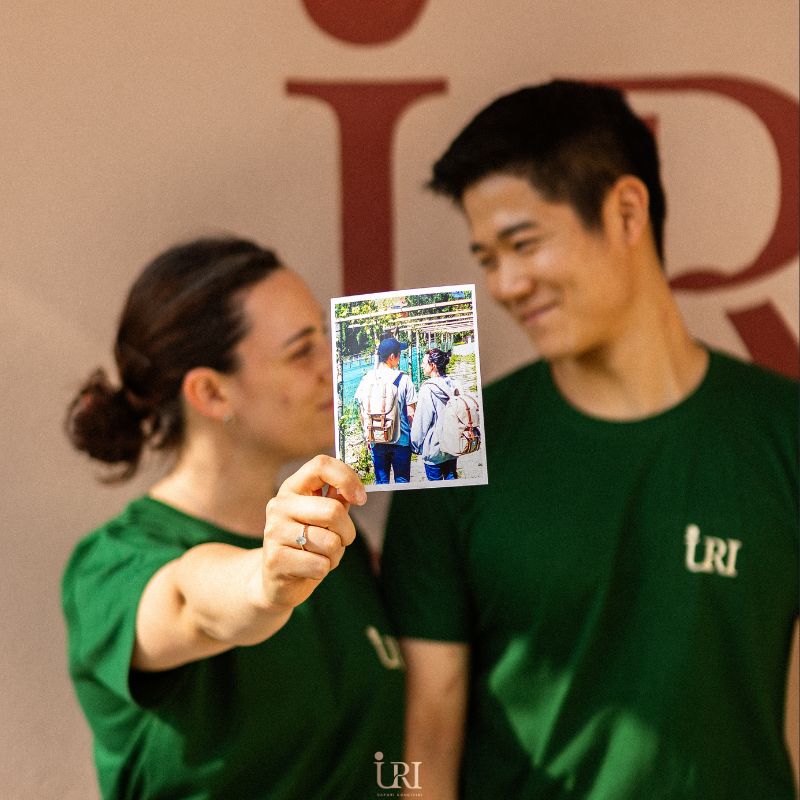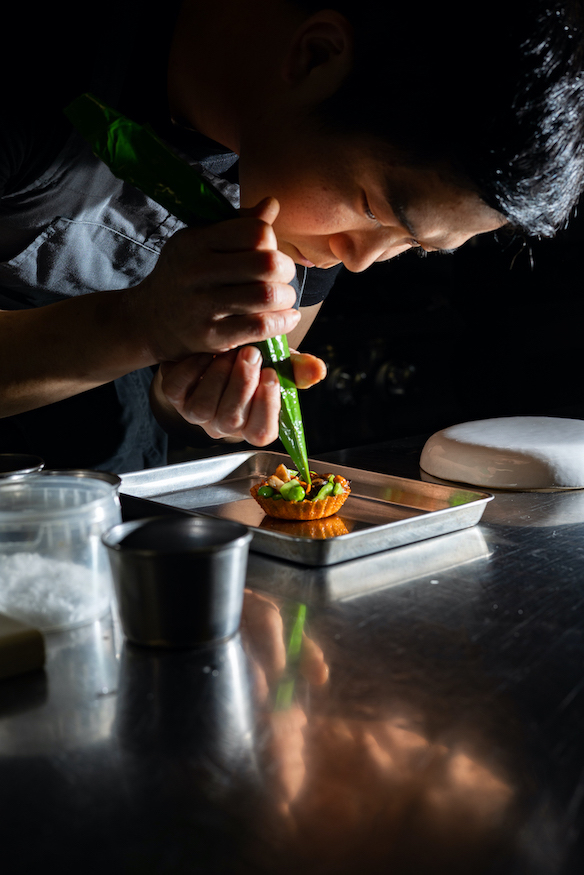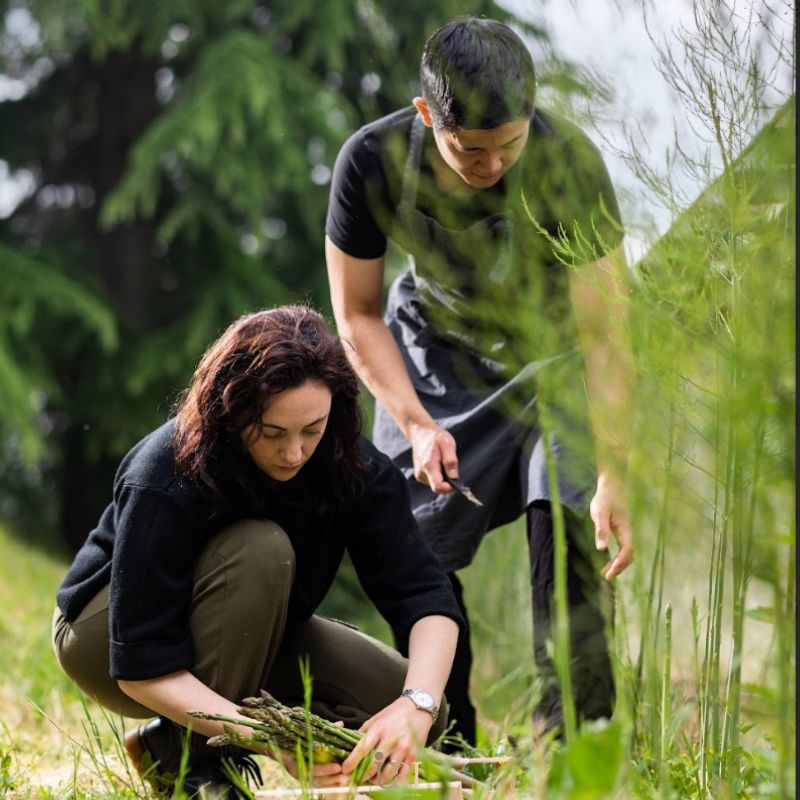- 한국어
- English
- 日本語
- 中文
- العربية
- Español
- Français
- Deutsch
- Pусский
- Tiếng Việt
- Indonesian
By Honorary Reporter Vincenzo Acampora Carratura from Italy
Photos = Uri Sapori Condivisi
Uri Sapori Condivisi is a popular Korean-Italian restaurant based in the township of Roddino in northern Italy. Started in 2018 by the chef couple of Kim Seul-ki and Federica Vergne, the bistro, whose name in Italian means "shared flavors," fuses Korean and Italian cuisines through constant experimentation.
Kim and Vergne studied both cuisines to create dishes like plin, a traditional Piemonte stuffed pasta filled with Korean ragout sauce, perilla leaves wrap with eel, ginger and Korean seaweed, pigeon with myeongyi (victory onion), nurungji (scorched rice) risotto and hotteok (bun with sweet filling) with Piemonte hazelnuts and cinnamon.
The following are the excerpts from an email interview on Dec. 21, 2023, and an in-person visit to the restaurant eight days later.

Kim Seul-ki and Federica Vergne are the two owner-chefs of the Korean-Italian restaurant Uri Sapori in northern Italy.
What do you think Korean and Italian cuisines have in common?
Vergne: I think what unites the two cuisines is that people in both countries are foodies. We love to eat more than anything else.
Kim: I think that combining these two cuisines isn't so obvious. For example, Italians eat meat cut thick and cooked rare but Korean like their meat thin and barbecued. The fruit of a vegetable is mainly eaten in Italy but Koreans eat the leaves or flowers. For noodles, Italians like theirs freshly made while in Korea, it's common to cook packaged noodles ready in two minutes. For spices, just a few are commonly used next to salt in Italian cuisine, while Korea uses chili paste, fermented sauces and so on.
How do your menu items come together?
Vergne: The pressure of a restaurant where everyone expects things to be both different and innovative isn't easy to endure. A dish maybe comes from an idea thought of on a given day at any time, and then there's thinking about it for a time and elaborating. Afterwards, you have to prepare it and try over and over through trial and error before creating the final version of a dish.
Kim: Creating new dishes requires travel and exploration of new flavors and cuisines as well as enough time to rest. A clear mind is needed because when you create something so instinctively, a good dish doesn't come out as planned. I'm often unhappy with what I create because maybe I need more time to try it, but the time constraints of running a restaurant are inescapable.
The ideas for our menu can come from any source like a desire to try new things, in-season vegetables, something we try while dining out or things in a cookbook.

Chef Kim Seul-ki works on a dish
What kind of vegetables do you grow at the garden behind your restaurant?
Vergne: The garden is probably where our two cultures and knowledge come together best. We use Korean vegetables and greens like perilla leaves in our dishes, but don't plant vegetables thinking about a dish we want to make. We plant seasonal vegetables and those that can grow best in the Roddino area.
When the vegetables are healthy and ready for harvest, Seul-ki brings them to the kitchen to study and experiments to find the best ways to use them. The basis of our dishes are Italian ingredients used with Korean techniques, flavors and sauces.

The two owner-chefs work on the garden behind their restaurant.
How do you juggle being a couple in life and partners at work?
Vergne: We just celebrated our sixth wedding anniversary. We were really opposites early in our relationship but had a love that united us.
We started living together after going abroad for work and compromised. We use this approach in our working life. Working together is good and not stressful because neither of us could've started Uri without each other.
Kim: We complement each other a lot both in work and life. We give each other our space and talk about our needs. We don't fight often, but this isn't always a good thing as confrontation sometimes helps. What's important is our high trust and esteem for each other as partners in life and business. Having a lot of passion and things in common also helps. Maybe the most difficult thing for us is to choose what movie to watch together because of our different tastes.
msjeon22@korea.kr
*This article is written by a Korea.net Honorary Reporter. Our group of Honorary Reporters are from all around the world, and they share with Korea.net their love and passion for all things Korean.